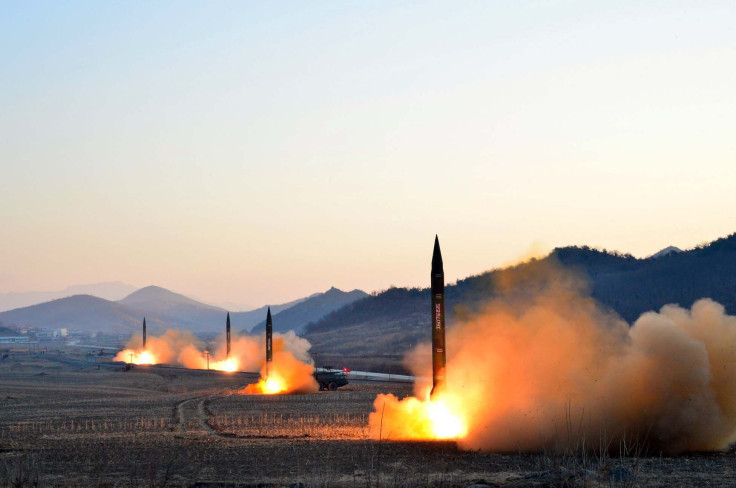North Korean Defectors Claim 'Ghost Disease' Is Nuclear Radiation Poisoning

A group of North Korean defectors attributed mysterious health problems to radiation poisoning from nuclear tests, but experts are less sure what is causing their “ghost disease.”
"So many people died we began calling it 'ghost disease,'"Lee Jeong Hwa, a North Korea defector who now lives in South Korea, told Seoul-based reporter Bruce Harrison of NBC News. “We thought we were dying because we were poor and we ate badly. Now we know it was the radiation.”
Lee is from Kilju County in North Korea, home to Punggye-ri, a military site where nuclear weapon tests are conducted. North Korea has conducted six nuclear bomb tests in its history and Lee, who escaped in 2010, was there for two of them. She said she didn't know about the tests until she left.
The most recent test happened in September, it was the most powerful test the country has conducted. North Korean officials claimed it was a hydrogen bomb.
Lee and other defectors told NBC News that leukemia and other diseases are widespread in the region. Another defector from the region, Rhee Yeong Sil, said that her neighbor gave birth to a deformed baby without genitals, and attributed the deformities to the nuclear testing. Rhee said that the baby, like many deformed children in the country, was killed.
According to the Mayo Clinic, Leukemia and the risk of other cancers increase significantly with exposure to nuclear radiation.
Other defectors who spoke to South Korean newspaper Chosun Ilbo last month, said that 80 percent of trees planted near the site die.
Experts are less sure what is causing the diseases. North Korea’s total lack of transparency and separation from the outside world make insights into what the defectors are describing difficult.
Suh Kune-yull, a nuclear engineering professor at Seoul National University, told NBC News that researchers don’t have enough information.
“I don’t think they’re lying,” said Suh. “We have to take their word, but I don’t have much reliable information.”
South Korea’s Ministry of Unification, a government body that deals with North Korea-South Korea relations, has tested a number of defectors for radiation poisoning, but that the tests have come up clean.
Other countries who monitor the area, have also not seen evidence of nuclear radiation leaving the test site. After September’s nuclear test and subsequent tremors that sparked fears of a site collapse, Japan and China said that they detected no leaked radiation, according to Agent France-Presse.
Ferenc Dalnoki-Veress, a scientist at Middlebury Institute of International Studies at Monterey working on non-proliferation, told NBC News that he doubts radiation poisoning is causing the sicknesses and that international monitoring would have picked up on it.
Another North Korean health problem, exposed by a defector, was roundworms. A soldier who defected from North Korea last month had a variety of roundworms in his stomach, which can cause a number of ailments. The worms are usually found in conditions with poor hygiene and sanitation.
© Copyright IBTimes 2025. All rights reserved.



















